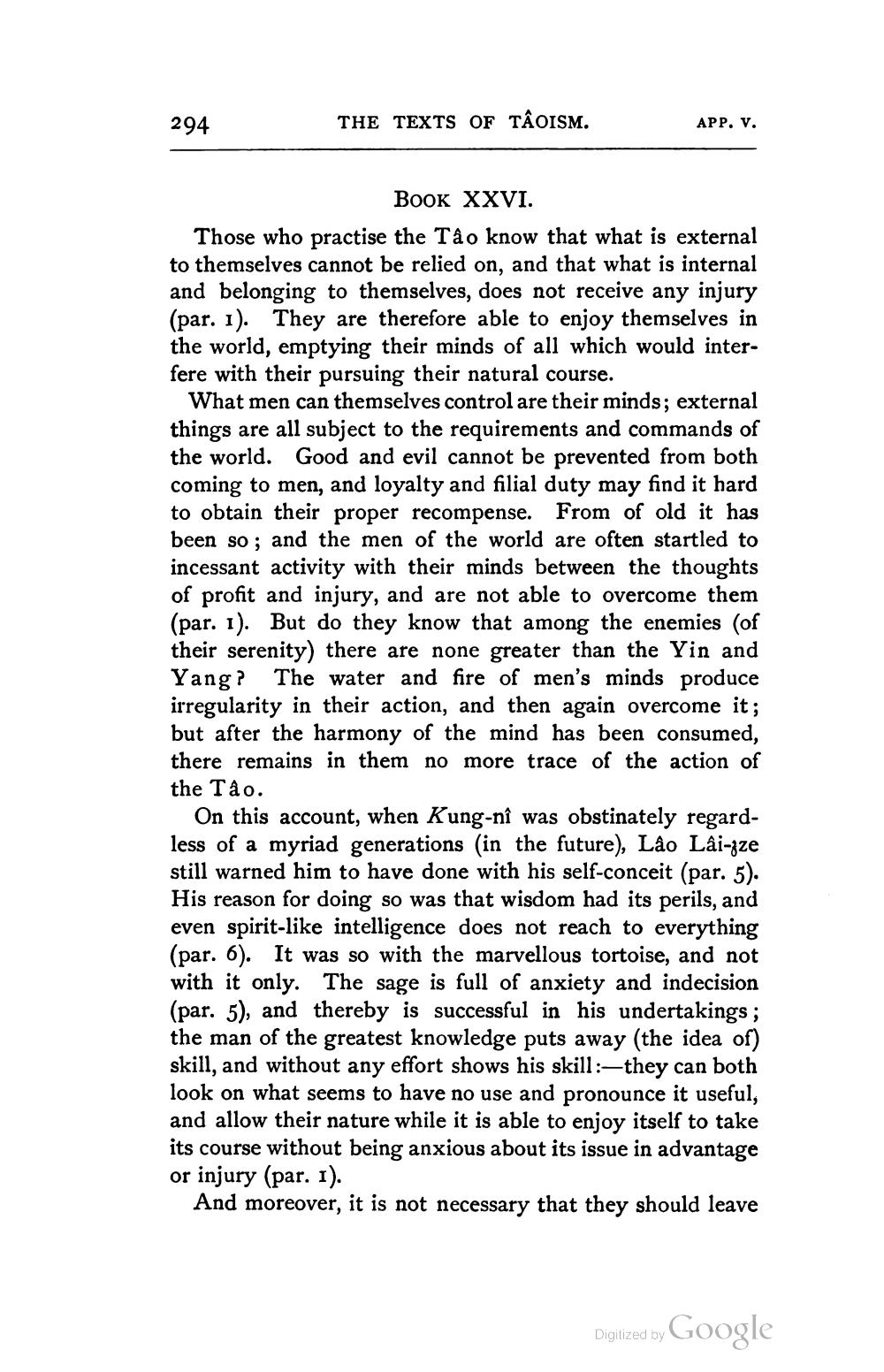________________
294
THE TEXTS OF TÂOISM.
APP, V.
Book XXVI. Those who practise the Tào know that what is external to themselves cannot be relied on, and that what is internal and belonging to themselves, does not receive any injury (par. 1). They are therefore able to enjoy themselves in the world, emptying their minds of all which would interfere with their pursuing their natural course.
What men can themselves control are their minds; external things are all subject to the requirements and commands of the world. Good and evil cannot be prevented from both coming to men, and loyalty and filial duty may find it hard to obtain their proper recompense. From of old it has been so; and the men of the world are often startled to incessant activity with their minds between the thoughts of profit and injury, and are not able to overcome them (par. 1). But do they know that among the enemies (of their serenity) there are none greater than the Yin and Yang? The water and fire of men's minds produce irregularity in their action, and then again overcome it; but after the harmony of the mind has been consumed, there remains in them no more trace of the action of the Tao.
On this account, when Kung-nî was obstinately regardless of a myriad generations in the future), Lâo Lâi-zze still warned him to have done with his self-conceit (par. 5). His reason for doing so was that wisdom had its perils, and even spirit-like intelligence does not reach to everything (par. 6). It was so with the marvellous tortoise, and not with it only. The sage is full of anxiety and indecision (par. 5), and thereby is successful in his undertakings the man of the greatest knowledge puts away (the idea of) skill, and without any effort shows his skill: they can both look on what seems to have no use and pronounce it useful, and allow their nature while it is able to enjoy itself to take its course without being anxious about its issue in advantage or injury (par. 1).
And moreover, it is not necessary that they should leave
Digitized by Google




